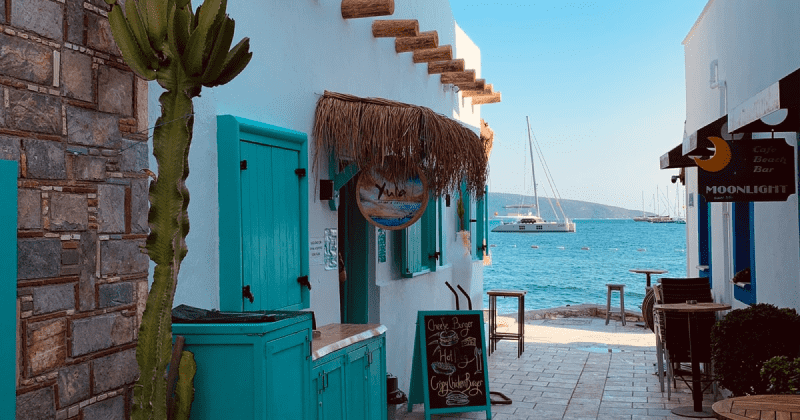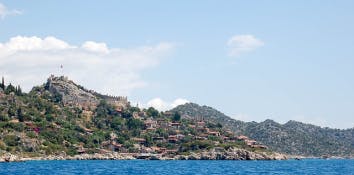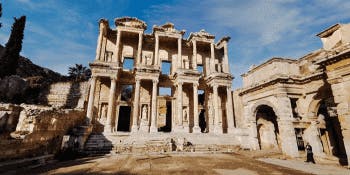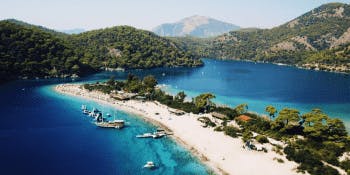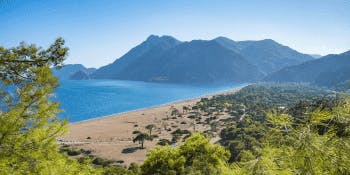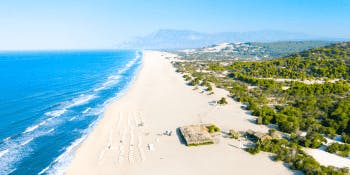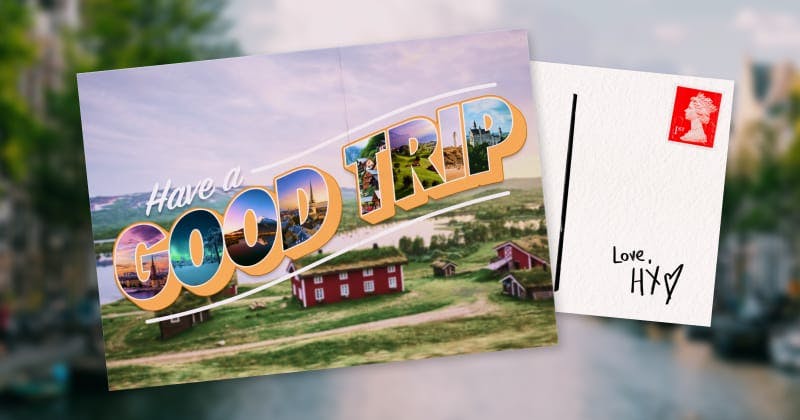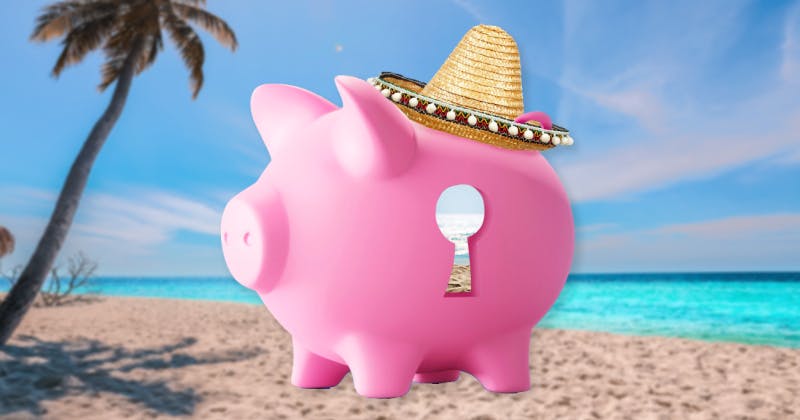
Turkey Travel Guide
Whether it's a city break, a family getaway or a laze on the beach you fancy, Turkey is a great place to visit all year round. Get lost in bustling bazaars, see historic sites and marvel at the beautiful landcapes that await.
What you'll find in this guide:
Top things to do in Turkey
Practical information
Getting to Turkey
Getting around Turkey
Best beaches in Turkey
Turkey for families
Accessibility in Turkey
Turkey for LGBTQ+ travellers
Turkey FAQs
GMT +3
Turkish lira TRY
Turkish
Type F
4 hours
Practical Info
Culture and etiquette
Religion
Islam is the most practised religion – the majority of the population are Sunni Muslims.
Tipping
A service charge is often included in hotel and restaurant bills. In less expensive restaurants, a small tip is appreciated.
Smoking
Smoking is banned in enclosed public spaces including restaurants, bars and public transport.
Language 101
The official language is Turkish, although Kurdish is also spoken in the southeast. English is widely spoken in major cities and tourist areas, as well as French and German.
Forget about the letters q, x and w, as they aren’t used in Turkish. Instead, say hello to:
- ı – pronounced as the ‘e’ in open, or the ‘i’ in cousin
- ü – ‘u’ in cube or pure
- ö – ‘u’ in turn, or ‘ea’ in learn
- ç – ‘ch’ in chicken or church
- ğ – this is the most distinctive letter in the Turkish alphabet, and its pronunciation depends on where it appears in the word. Before a vowel, it’s silent, and after the letter ‘e’ it sounds like a faint ‘y’ sound. If it’s before a consonant or at the end of a word, the previous vowel sound is pronounced for longer.
- ş – ‘sh’ in ship or shell
Turkish grammar is quite different from English too. Verbs are put at the end of a sentence, and the verb ‘to be’ is nowhere to be seen.
Helpful Turkish Phrases
Hello - Merhaba
Goodbye - Güle Güle
How are you? - Nasılsınız?
Yes - Evet
No - Yok
What's your name? - Adınız ne?
My name is - Adım
Please - Lütfen
Thank you - Teşekkür ederim
How much is it? - Ne kadar?
Where is? - Nerede?
Numbers:
- One - Bir
- Two - İki
- Three - Üç
- Four - Dört
- Five - Beş
Jabs, visas and other advice
For up-to-date advice on jabs, visas and other foreign advice, we recommend following the government’s website.
Emergency numbers
For any emergency, call 112.
Getting to Turkey
Flight times vary depending on where you’re going, but you’re typically looking at around 4 hours from London to İstanbul, or 4 hours and 20 minutes if flying to Antalya.
You can also reach Turkey by train. It takes a fair amount longer but the journey will take you through Belgrade, Sofia and Budapest, and it’s much more eco-friendly than flying. If this is something you’re considering it’s worth looking into getting yourself a rail pass. Both InterRail and Eurail Pass offer unlimited travel in most European countries.
Turkey is also a very popular cruise destination, and this is an easy way to see cities like İstanbul, Antalya and Bodrum.
Getting around Turkey
Most large cities in Turkey have their own metro system, including İstanbul, Ankara and Antalya. Buses are widely available in smaller cities and towns, which are usually reliable and easy to use.
If you fancy heading outside the city, a high-speed train line connects İstanbul, Eskişehir and Ankara. For a leisurely, picture-perfect journey, catch the Doğu Ekspresi (Eastern Express) from Ankara to Kars, which passes through spectacular rocky landscapes that are snow-capped in the winter and a luscious green in the summer.
Driving is an option too, with car hire available in major cities. There is a road toll system you’ll need to be aware of – hire cars should be fitted with HGS cards, which are used to pay tolls electronically. The condition of roads connecting major cities is improving, but do keep in mind that road quality in rural areas is mixed and road accidents are fairly common.
Top
Turkey ranks 150th on the Good Trip Index
This score is calculated based on Sustainability, Human Rights, Women's Rights, Press Freedom, Quality of Life, LGBTQI+ Rights and Animal welfare
Find out moreFuel your wanderlust
Looking for the best beaches in Spain, where to take your family skiing or which Greek Island is best for partying? Well you've come to the right place.
Discover more...Turkey for families
Turkey is a wonderful destination for families. Whether you want an all-inclusive resort or a spot of culture, there are plenty of options for your family to enjoy.
For an all-inclusive resort with lots to keep the little ones entertained, Bodrum is a great choice. We recommend the beautiful Gümbet beach, where the water is calm and there are opportunities for fun water activities.
Antalya boasts two excellent beaches, Lara and Konyaaltı, and an excellent array of resort hotels. What sets Antalya apart is the other activities on offer, like the Antalya Aquarium which features the world's longest aquarium tunnel. For a quirky day out see the amazing sand sculptures at Sandland, or head to The Land of Legends if theme parks are more your thing.
Accessibility in Turkey
Depending on where in Turkey you're travelling, you may face different challenges when it comes to accessibility. İstanbul is an incredibly old city, founded in around 660 BC, which means that a lot of the roads or paths are cobbled, hilly, narrow and not overly accessible.
That being said the metro and tram line are accessible and will give you the opportunity to explore the Old Town and reach some of the most popular sites. Many major tourist attractions have been adapted with accessibility in mind, but it's worth checking before you go.
Elsewhere in Turkey you'll find better accessibility at some of the more modern resorts on the coast. The paths and roads here are generally wider and flatter making them much easier to navigate.
Turkey for LGBTQ+ travellers
While homosexuality is not a criminal offence in Turkey, no laws exist that protect LGBTQ+ people from discrimination in employment and the provision of goods and services or hate speech. Equally, Turkey does not legally recognise same-sex couples, marriages or civil unions.
However, İstanbul does have a renowned LGBTQ+ scene. The main area to visit is around Taksim, which has many bars and clubs that come alive by night. Beyoğlu is also more welcoming of the LGBTQ+ community, which is the place to go for art, entertainment and nightlife.
Be mindful that there may be some areas where prejudice remains, and public displays of affection may lead to unwelcome attention.
Turkey FAQs
What is the best time of year to travel to Turkey?
The best time to visit Turkey depends on what you're after on your holiday. For ultimate beach lounging weather, June to September pretty much guarantees scorching temperatures fit for the perfect all-inclusive holiday.
The height of summer is an excellent time to relax at resorts in Antalya, Bodrum and Fethiye, but it'll probably be too hot for a city break. If you're heading to Istanbul or Ankara, you're better off going in April, May or October. Temperatures tend to peak at 20°C, which is ideal for sightseeing.
Is Turkey safe to visit?
Turkey is generally a safe place for tourists to visit, but there are a few things to be mindful of before you travel.
The FCDO considers most of the country safe to travel to, but advises against going to Sirnak, Hakkari province or within 10km of the Syrian border. Demonstrations sometimes take place in Istanbul, Ankara and other major cities too, which should be avoided. The threat of terrorism remains high too, particularly in major cities, so it's important to stay vigilant.
The crime rate in Turkey is quite low, but pickpocketing is common in tourist areas so keep a close eye on your belongings. For more advice on visiting Turkey we'd recommend checking the government's website.
Is Turkey affordable to visit?
Turkey is a very affordable destination for UK travellers to visit at the moment. The Turkish lire has lost half its pre-lockdown value against the pound, meaning your money will go further than ever.
If you're looking to save some cash on your trip to Turkey, it can pay to avoid the all-inclusive resorts on the south coast and go for self-catering accommodation instead. That way you can head out and try authentic Turkish food from local restaurants, which tends to be quite affordable. It's cheaper to travel outside of peak season too – late spring and early autumn are still relatively warm, and it's usually cheaper and less crowded at popular destinations.
Is tap water safe to drink in Turkey?
The quality of the tap water in Turkey varies from place to place, but the safest bet for travellers visiting the country is to drink bottled water. The tap water is usually fine for washing your hands and brushing your teeth, but to avoid picking up an illness on holiday we wouldn't recommend drinking it.
Top
